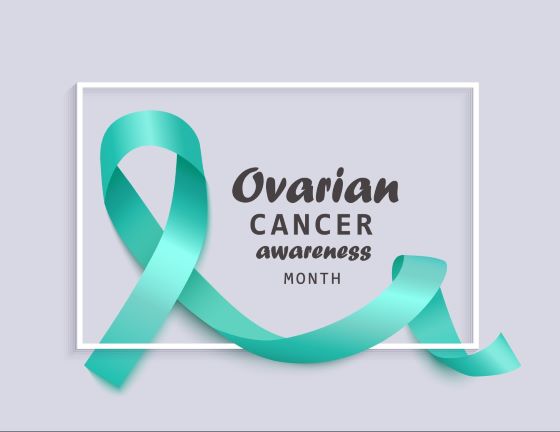If you have been downtown near the Spectrum Butterworth campus you will notice teal ribbons on all the columns and trees. Many people don’t realize that September is Ovarian Cancer awareness month. Unfortunately, this disease hits home for us. In the last couple of weeks, co-owner Amy Ritsema was diagnosed. In light of this recent diagnosis, we are bringing Ovarian Cancer Awareness to the forefront this month. Below is helpful information regarding Ovarian Cancer.
What is Ovarian Cancer?
Cancer in general starts when cells in the body begin to grow out of control. Ovarian cancer is a growth of cells that forms in the ovaries. The cells multiply quickly and can invade and destroy healthy body tissue.
Many believe Ovarian Cancer starts in the ovaries. Recent studies have shown ovarian cancer develops in the cells closer to the end (distal) of the fallopian tubes.
Statistics
According to the American Cancer Society, 21,410 women will receive a new diagnosis of ovarian cancer a year. However, the rate for diagnosis is decreasing each year from the past 20 years. Though this is not always the case, women diagnosed are often 63 or older. Ovarian cancer ranks fifth in cancer deaths among women, accounting for more deaths than any other cancer of the female reproductive system. A women's risk of getting ovarian cancer is 1 in 78. The chances of dying are 1 in 108. (These statistics don’t count low malignant potential ovarian tumors.)
Symptoms
Women may not experience symptoms till the disease has spread, but even in the early stages you may experience them. The most common symptoms are:
- Bloating
- Pelvic or abdominal (belly) pain
- Trouble eating or feeling full quickly
- Urinary symptoms such as urgency (always feeling like you have to urinate) or frequency (having to urinate often)
It is important to note that women may experience these symptoms with other non-cancerous diseases. With ovarian cancer, these symptoms often appear at least 12 times a month.
Other symptoms may include:
- Fatigue (extreme tiredness)
- Upset stomach
- Back pain
- Pain during sex
- Constipation
- Changes in a woman's period, such as heavier bleeding than normal or irregular bleeding
- Abdominal (belly) swelling with weight loss
Some Good News
- Using hormonal methods of birth control (pills, patch, vaginal ring, injection)
- Being pregnant, breastfeeding
- Having your fallopian tubes tied
- Having a hysterectomy
If you or a loved one have concerns about ovarian cancer, contact your physician. To learn more about the disease, visit American Cancer Society. https://www.cancer.org/cancer/
-1.png?width=300&name=1127895_OSW%20Tagline%20Logo_081021%20(1)-1.png)


